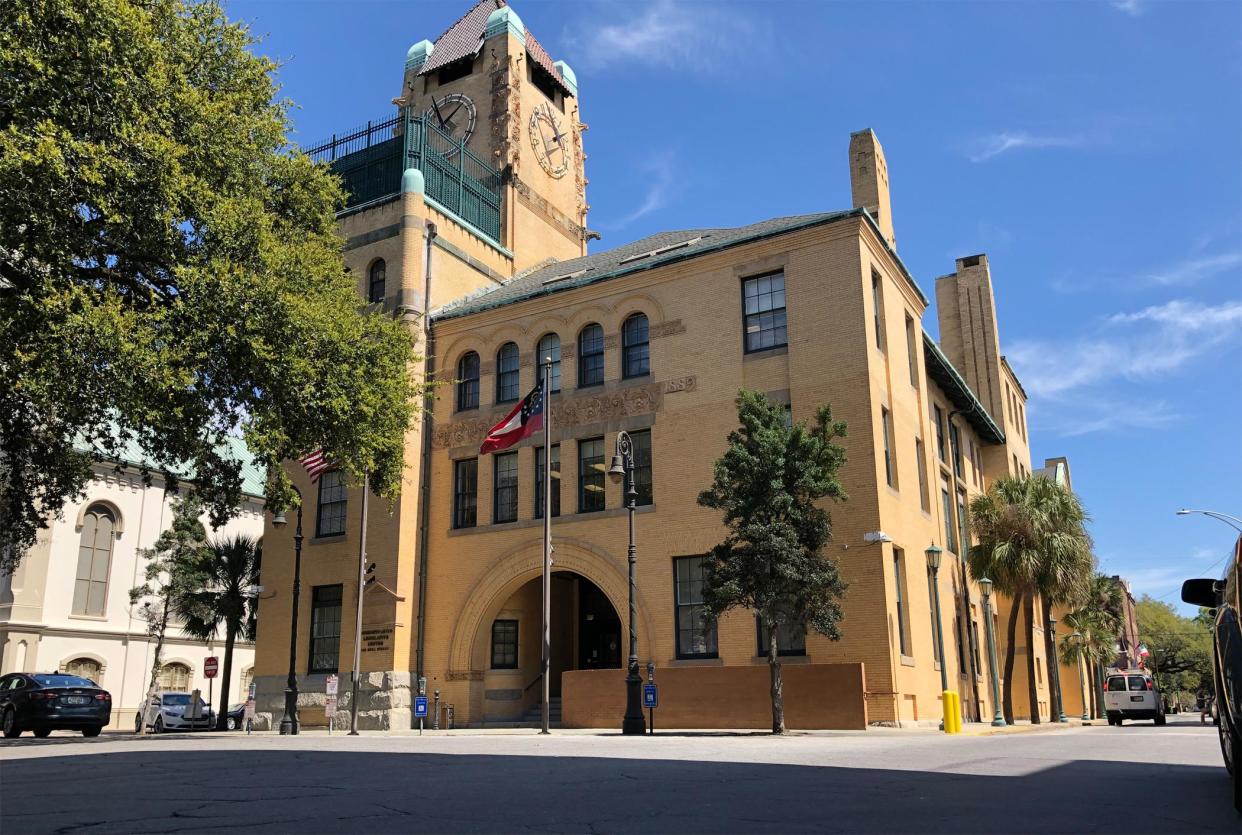Chatham County Commission maintains millage rate, adopts $245 million FY2024 budget

At the last of three millage rate hearings on Friday morning, the Chatham County Commission voted to maintain county millage rates, which will result in rising property tax bills for non-homesteaded property owners across the county at the next billing cycle.
The decision to maintain the rate rather than adopt a rollback comes after rising costs for capital projects, including completion of the trial courts building, funding for the new emergency operations center and the fire services contract. Staffing and retention issues have also stretched the county budget.
More: Chatham County to keep current millage rate, bumping property taxes to cover increased costs
The county’s adoption of the existing millage rate comes after proposals from the school district and the City of Savannah to do the same. Last year, all three entities had adopted the rollback rate, which yields the same amount of property tax raised in the previous cycle.
Rising home valuations and growth in the digest in the last 12 months will lead to an increase in property taxes across all three county-related millage rates. The General Maintenance and Operations tax levied at 10.518 mills on all county residents will see an increase of 8.41%. The Special Services District millage rate of 4.502, which applies to unincorporated residents, will see an increase of 5.90%.
More: Savannah's proposed millage rate would help fund stormwater improvements
More: Savannah-Chatham Schools to see 10% increase in tax revenue. So why is there still a deficit?
And, the Chatham Area Transit service district millage rate of 1.056, which encompasses Savannah, unincorporated areas and parts of Garden City will increase by 7.65%.
“With the new growth and many people, we need more roads, more infrastructure, more everything to actually service everyone here,” said District 7 Commissioner Dean Kicklighter. “That money in this case is being utilized to cover the expenses and cost increases that happen every year. So, no, we couldn’t afford to rollback your taxes today.”
Property taxes are calculated using a property’s assessed value or 40% of the fair market value, which is determined by county assessors and fluctuates based on market activity. The millage represents $1 for every $1,000 in taxable value or the assessed value.
Homeowners who qualified for the Stephens-Day exemption, which freezes home valuations at the time of the homestead application, won’t see a property bill increase unless the millage rate is raised.
For the General Maintenance and Operation, the proposed tax increase for a home with a fair market value of $225,000 is approximately $61.20 and the proposed tax increase for non-homestead property with a fair market value of $450,000 is approximately $142.80.
In the unincorporated area, the proposed tax increase for a home with a fair market value of $225,000 is approximately $61.20 and the proposed tax increase for non-homestead property with a fair market value of $450,000 is approximately $142.80.
For owners in the Chatham Area Transit service district, increases for non-homestead properties with those fair market values are $5.63 and $13.13, respectively.
Property tax funds a majority (76%) of general fund revenue, which is budgeted for government services such as public works, public safety, the judicial system and other operations. This year's county budget totals approximately $245.4 million.
Commissioners unanimously passed the budget, but not without gripes. Helen Stone, District 1 commissioner, who oversees a swath of island communities, expressed her disappointment at the county's failure to solve long-standing drainage issues on Burnside Island. The neighborhood sits south of the Wormsloe Historic Site and is surrounded by waterways.
"We've had a year. We have tidal gates that are not functioning properly ... ditches are full, water's not moving," said Stone, "so, I have some heartburn voting for this budget. I want to make sure that this is taken care of, because if not, and I don't know how else to say it, but I'm going to be your worst nightmare."
County Manager Michael Kaigler said that $1.4 million is allocated for initial fixes and that additional funds would have to be drawn, if needed.
In other county business, the commission approved an amendment to the Fire Fee Ordinance that was established last June. The fire fee was adopted -- and the fire tax repealed -- in response to budget issues at Chatham Fire caused by thousands of non-paying unincorporated Chatham County residents. Fire service bills are calculated based on the square footage of your improved property, which includes all structures that could catch fire and burn.
The amended ordinance includes a new calculation for the fee at 14 cents per square foot of burnable structure, removes certain ancillary structures such as residential docks, and includes minor edits to the language of the ordinance per the input from unincorporated Chatham County residents.
Additionally, the $100 land fee will only apply to properties with no burnable structures.
The amended Fire Fee Ordinance will go into effect July 1, 2023.
Nancy Guan is the general assignment reporter covering Chatham County municipalities. Reach her at nguan@gannett.com or on Twitter @nancyguann.
This article originally appeared on Savannah Morning News: Chatham County maintains millage rate, adopts $245 million FY2024 budget

